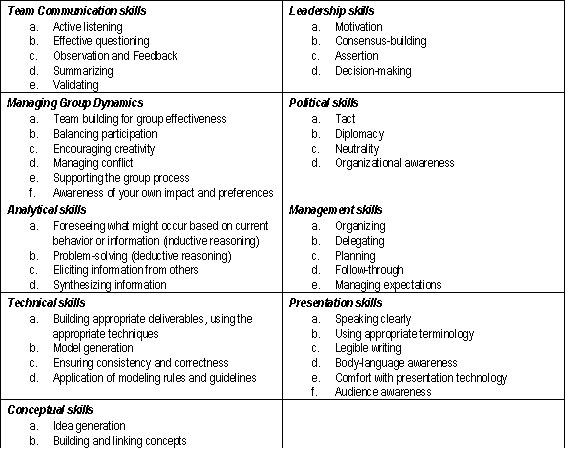“The first and most important step toward success is the feeling that we can succeed.” Nelson Boswell, Author
The BPM industry continues to improve its technologies and approaches to handle the many challenges involved with implementing and practicing BPM. But who is paying attention to the softer side of BPM? Whether you are using pencil and paper or a more sophisticated integrated suite of tools, the successful implementation and adoption of BPM in your organization revolves around people. So the question is…how can you help people transition from hesitancy and resistance to acceptance, engagement, and support?
Realize It Isn’t Just About Logic.
My husband and I recently implemented a new financial system. It addressed most of the improvements I wanted such as allowing concurrent updates, providing easier input, and permitting our accountant to access our reports as needed. In fact, it did everything the old system did plus some. But in spite of the rational benefits – I liked the old system. And just reading the list of benefits and new features didn’t make me feel any better about the change. My husband, on the other hand, was excited about changing to the new financial system. He saw immense value in the new features and realized it would ultimately make our tasks much easier. But if he had tried to get me as emotionally pumped up as he was, I would have dug my heels in further and refused to change.
The same is true in BPM initiatives. Even though you may be excited about the future, not everyone will feel the same way. The goal isn’t to get others on-board with your feelings or the logic of the change; it’s to empathize with theirs and help them adapt to the change. Rational arguments, supported by metrics and studies, can quell their fears but never eliminate them. As William E. Utterback states in his book on Group Thinking, “It was an optimistic philosopher who defined man as ‘the rational animal’.” 1
Fortunately, my husband was able to realize that feelings play a major part in adoption and use – two critical issues in the success of BPM efforts. Because of this, he found ways to allow me to express my feelings and gradually embrace the change.
Start With Your Own Attitude.
How can you create an atmosphere that will foster the adoption of BPM? Start with that which you can control, your own attitude. Try applying the four foundational principles found in “The Four-Fold Way” 2 . These principles stem from ancient Native American culture; yet are as applicable to BPM as any other human activity.
I. Show up and choose to be presentDon’t avoid the emotional challenges associated with change. Be willing to listen without thinking about your rebuttal or how the other person needs to be different.II. Pay attention to what has heart and meaningListen to, appreciate and value the words and reactions of others. In addition to the hard facts they state, make note of their feelings about those facts. III. Tell the truth without blame or judgmentTruth is relative – my view of it may be different than yours. Sharing and respecting each others truths allows each party to feel heard and valued. This leads to a more productive discussion rather than a struggle over whose truth is “right”.IV. Be open to outcome, not attached to outcomeJust because I tell you the answer to a question, doesn’t mean you’ll believe it or trust it. In the same way, attempts to persuade and convince others that BPM is the golden bullet for their organizational woes may go in one ear and out the other. As one wise man said, “A man convinced against his will is of the same opinion still”. First investigate their needs and desires before focusing on how BPM will solve them.
The above principles do not suggest that you disregard your personal feelings, but merely prevent them from interfering with your ability to appreciate the feelings of others.
Leverage Your Soft Skills.
What are these soft skills? Unfortunately there is no absolute definition. One of the more frequently used descriptions states that “soft skills” are…
“The cluster of personality traits, social graces, facility with language, personal habits, friendliness, and optimism that mark people to varying degrees. Soft skills complement hard skills, which are the technical requirements of a job.”
To further clarify the difference between hard and soft skills, think of soft skills as those that address feelings while hard skills are those that are more measurable through observation (i.e., seen). Common examples of soft skills include:
- responsibility
- self-esteem
- sociability
- integrity/honesty
- self-management
- teaches others
- serves client / customers
- exercise leadership
- negotiates
- works with cultural diversity
So how can you leverage these skills? Practice, practice, practice. Think of yourself as a facilitator of change. A good facilitator engages collaboratively with others to help them achieve their desired outcomes. They leverage the experience and knowledge of those involved; thus getting acceptance and buy-in to change.
Use the following Table to evaluate your facilitation skill set. If you see an area of weakness, don’t panic. There’s training available on all of these topics either through your company or an external association or vendor.
Skills of a Good Facilitator

Nobody said implementing change was easy. But if your success depends on it, try approaching from the softer side of BPM. Realize the part emotions play in the decision process, see the bigger picture (which takes into account other people’s feelings and thoughts), and put your facilitative skills into practice.
1Utterback, William E. Group Thinking and Conference Leadership , Revised Edition. New York: Holt, Rhinehart and Winston, 1964.2Angeles Arrien, The Four-Fold Way Walking the Paths of the Warrior, Teacher, Healer and Visionary. San Francisco: Harper, 1993.

















